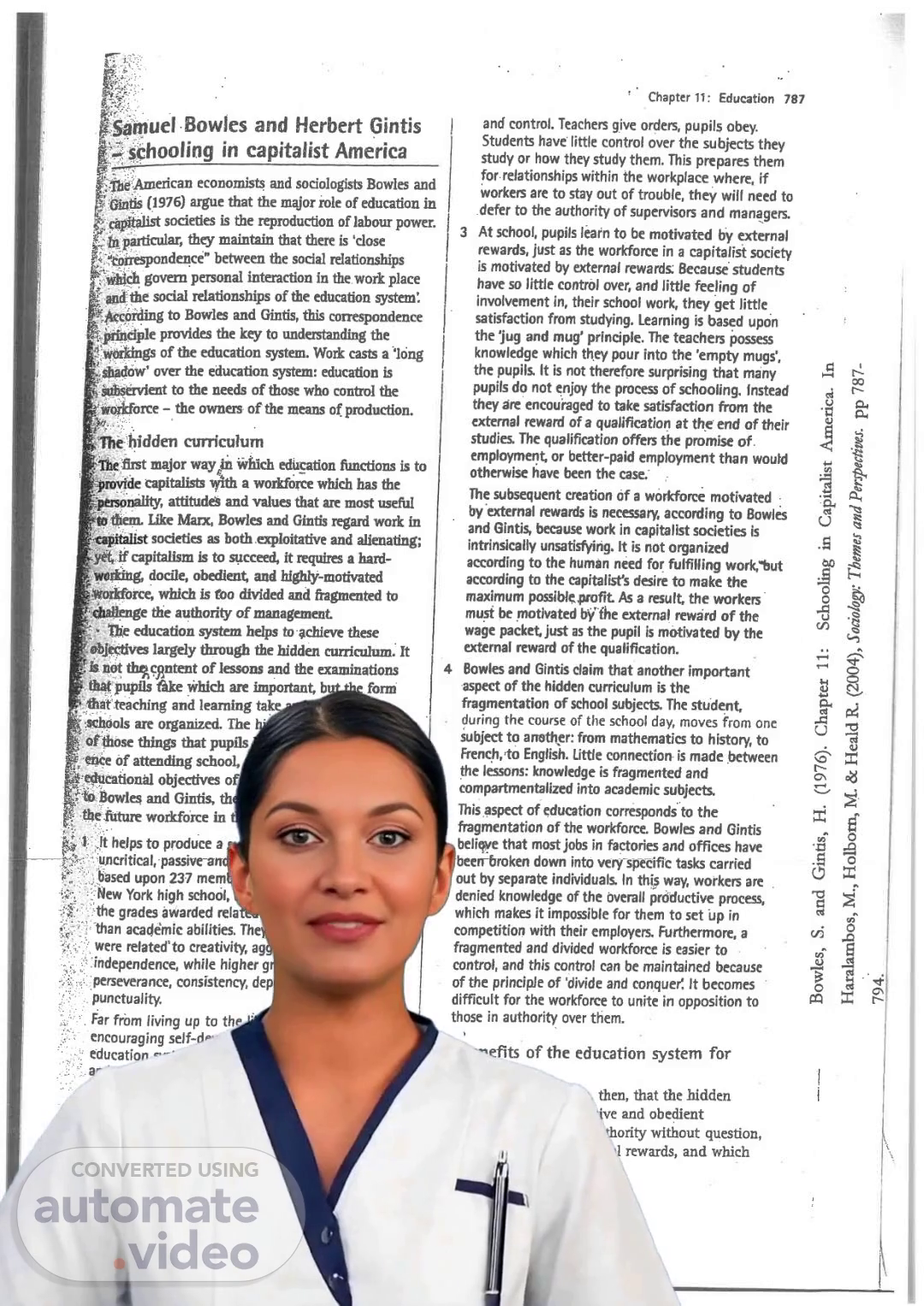Scene 1 (0s)
[Virtual Presenter] Effective PowerPoint presentations are crucial for engaging and informing your audience. To create an effective presentation, it is essential to have a clear structure, concise language, and relevant visuals. A well-organized presentation can make a significant difference in capturing the attention of your audience and conveying your message effectively. A key element of a successful presentation is the use of images and graphics. These visual elements can help to illustrate complex concepts, add visual interest, and convey emotions. However, it is also important to use these elements judiciously, as too many images can detract from the main message and confuse the audience. Another critical aspect of a presentation is the use of storytelling techniques. Storytelling can help to engage your audience, build trust, and convey complex information in a more relatable way. By incorporating narrative elements into your presentation, you can create a more immersive experience for your audience. In addition to using images and storytelling techniques, it is also important to consider the timing and pacing of your presentation. The timing and pacing can greatly impact the effectiveness of your presentation, making it easier to keep your audience engaged and focused throughout the entire duration of the presentation. By applying these principles, you can create a compelling and engaging PowerPoint presentation that captures the attention of your audience and conveys your message effectively..
Scene 2 (1m 41s)
[Audio] Bowles and Gintis argue that education has two types of effects on capitalism. Education provides direct benefits such as skills and knowledge that can be used by employers. Education also has indirect benefits through the legitimation of inequality. The education system creates an illusion of equality of opportunity, where individuals believe they have an equal chance of succeeding regardless of their social background. The education system maintains this illusion by providing free education to all, but ultimately favors those from wealthy backgrounds. As a result, individuals who are denied success often blame themselves rather than the system, which has condemned them to failure. Intelligence, educational attainment, and occupational reward are not closely linked. IQ is not the primary driver of educational success. Family background plays a much larger role in determining educational success. The education system does not function as a meritocracy, and social class continues to play a significant role in determining success. IQ has little direct effect on income variation, and occupation is determined by meritocratic principles. The relationship between educational credentials and occupational reward is not causal. The placement of individuals in the occupational structure is based on meritocratic principles, but social class continues to influence success..
Scene 3 (3m 13s)
[Audio] The character of a person is defined by their actions, not by their words. A person's character can be revealed through their behavior, body language, and speech patterns. The way they interact with others, including their tone of voice, facial expressions, and posture, all contribute to their overall personality. Their ability to make decisions, solve problems, and handle stress also reveals aspects of their character. Furthermore, a person's values, beliefs, and attitudes towards life can be seen in how they live their lives and make choices. These factors are often reflected in their relationships with others, work performance, and personal achievements. In addition, a person's physical appearance and grooming habits can also provide insight into their character. For example, someone who takes care of themselves may have a more positive self-image than someone who neglects their health and well-being. Similarly, a person who prioritizes their health may be more likely to prioritize their relationships and other areas of their life. On the other hand, someone who neglects their physical health may struggle with motivation and energy levels, which can impact their productivity and overall quality of life. By examining these various aspects of a person's life, we can gain a better understanding of their character..
